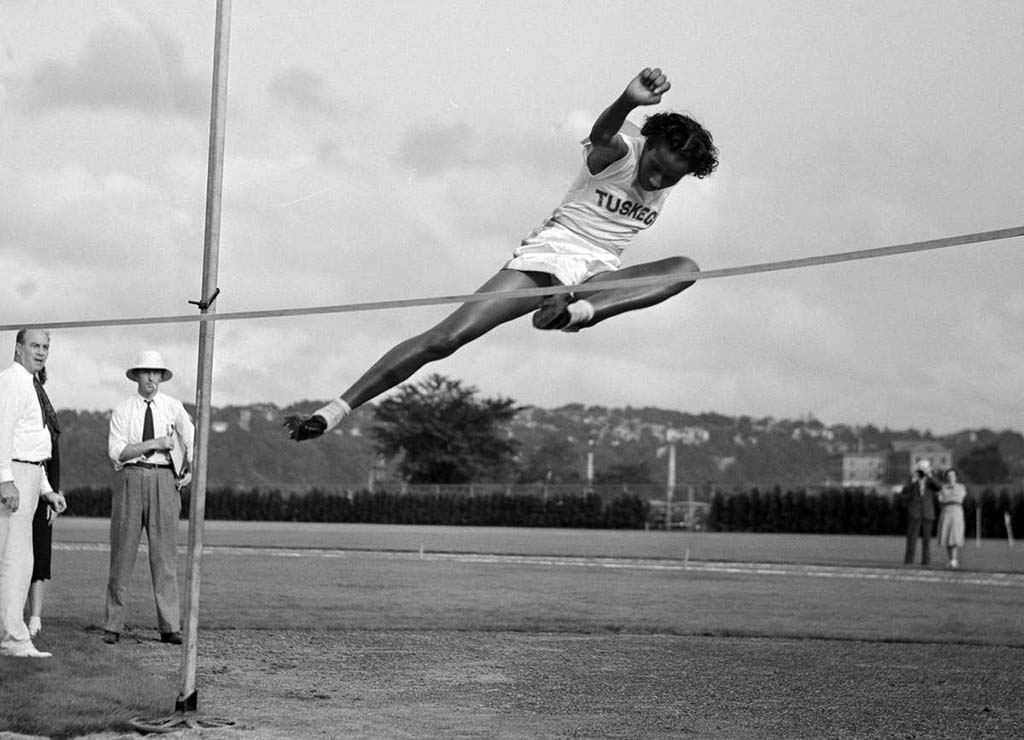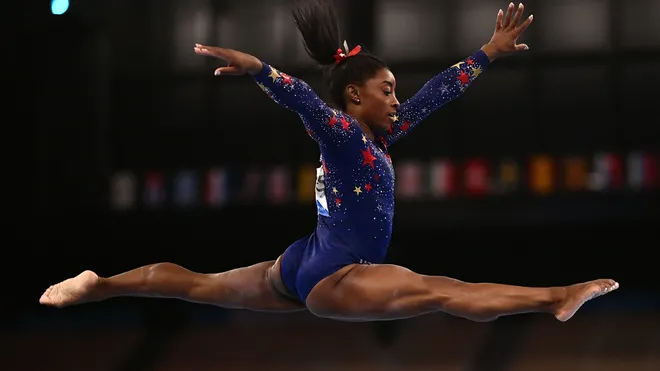Alice Coachman made history as the first Black woman from any country to win an Olympic gold medal. Growing up in the segregated South, she faced discrimination and limited opportunities but pushed through all obstacles, inspiring generations of Black athletes to follow their dreams.
Born on November 9, 1923, in Albany, Georgia, Alice was the fifth of ten children. Her father, Fred, was a plasterer, and her mother, Evelyn, worked hard to support the family. Alice helped out by picking cotton, gathering corn for local mills, and selling plums and pecans. But even with all that work, she had a natural talent for sports.
Back then, many people thought sports were “unladylike,” and her father, in particular, didn’t support Alice’s athletic pursuits. He even discouraged her from playing sports and would sometimes punish her for it, telling her to sit on the porch and act “dainty.” But Alice didn’t let that stop her. She joined the boys in playing baseball and softball, and eventually, her fifth-grade teacher and her aunt encouraged her to keep running. By the time she reached seventh grade, Alice was one of the best athletes in Albany—though access to proper training was still a struggle. With segregated facilities and no opportunity to train with white athletes, Alice trained alone, running barefoot on dusty roads and practicing high jumps with sticks and rope.
Her talent eventually caught the eye of the Tuskegee Institute in Alabama. This historically Black college offered Alice a chance to train with their team, and she transferred there for her sophomore year. It was at Tuskegee where she not only honed her athletic skills but also earned a degree in dressmaking. During her time there, she won four national championships in track and field.
Alice’s name started to make waves, and many people pushed her to try for the Olympics. She was dominating the national track scene, winning titles in the 50m, 100m, and 400m relay. But for many years, Olympic dreams seemed out of reach, as the Games were canceled in 1940 and 1944 due to World War II. When the Olympics returned in 1948, Alice was hesitant, but she finally tried out for the U.S. team. Despite a back injury, she set a new high jump record at the trials.
In August 1948, at Wembley Stadium in London, Alice made history. On a rainy day, she cleared the bar at 5 feet 6 1/8 inches, winning the gold medal and setting a new Olympic record. She was the first Black woman to win Olympic gold, and the only American woman to take home a gold at the 1948 Games. King George VI of Great Britain personally draped the medal around her neck.
When Alice returned to the U.S., she was celebrated with a grand motorcade and parties, including one thrown by jazz legend Count Basie. Even President Truman congratulated her. However, the celebrations took place in the segregated South. At one event, she had to exit through a side door because African Americans and whites were forced to sit separately. The mayor of Albany even refused to shake her hand, despite sitting on stage with her.
At just 24, Alice retired from track after the 1948 Olympics. She completed her degree in Home Economics from Albany State College in 1949, then became a teacher and track coach. She later married, had two children, and became the first Black female athlete to endorse a major international brand—Coca-Cola—in 1952.
Throughout her life, Alice was honored with numerous awards and inducted into nine halls of fame, including the National Track and Field Hall of Fame in 1975 and the U.S. Olympic & Paralympic Hall of Fame in 2004. In 1994, she started the Alice Coachman Track and Field Foundation to support young athletes in need.
Alice’s message was always about perseverance. She once said, “When the going gets tough and you feel like throwing your hands in the air, listen to that voice that tells you, ‘Keep going. Hang in there.’ Guts and determination will pull you through.”
Alice Coachman passed away on July 14, 2014, at the age of 90, but her legacy continues to inspire athletes around the world.




